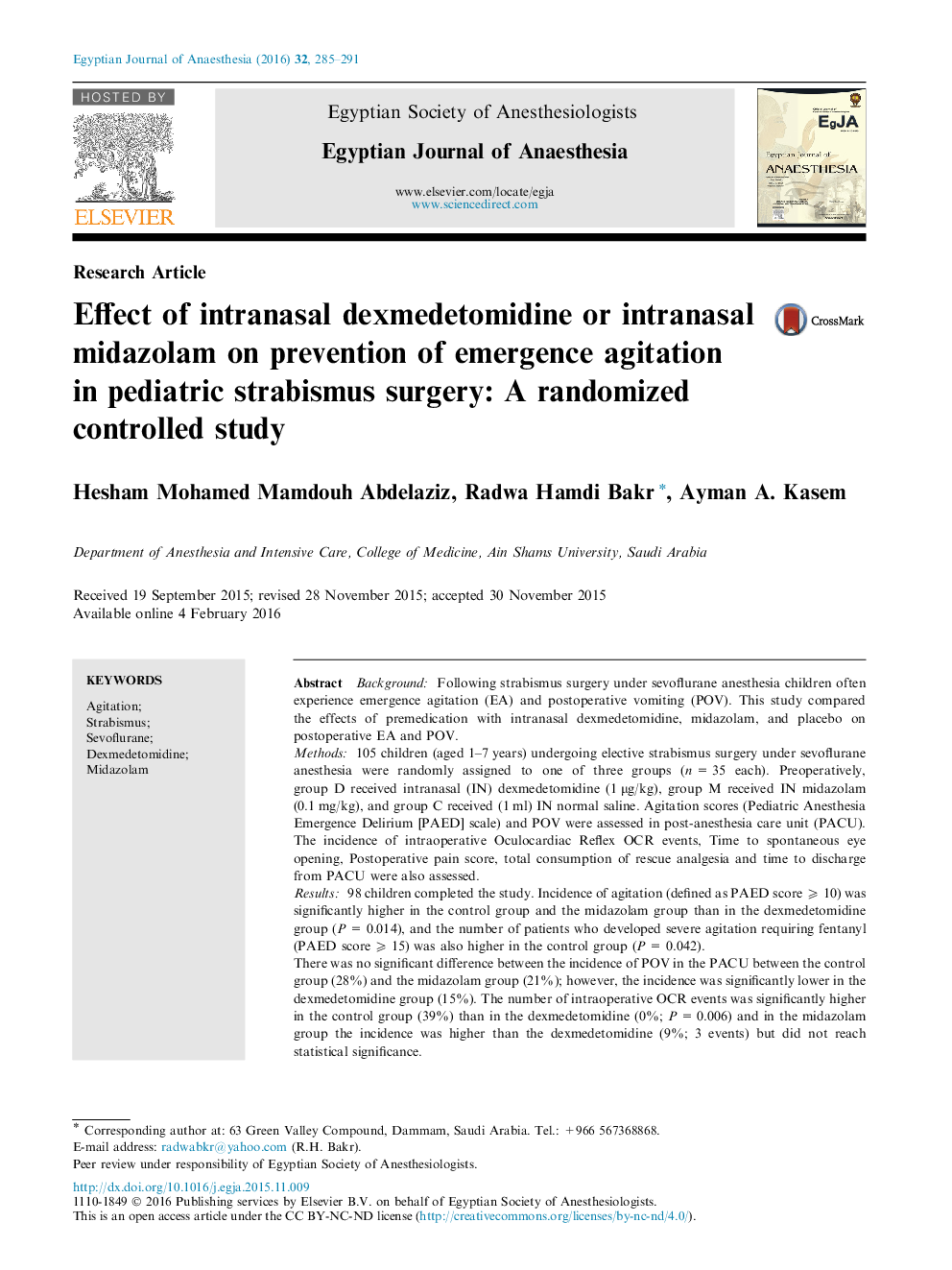| Article ID | Journal | Published Year | Pages | File Type |
|---|---|---|---|---|
| 2756116 | Egyptian Journal of Anaesthesia | 2016 | 7 Pages |
BackgroundFollowing strabismus surgery under sevoflurane anesthesia children often experience emergence agitation (EA) and postoperative vomiting (POV). This study compared the effects of premedication with intranasal dexmedetomidine, midazolam, and placebo on postoperative EA and POV.Methods105 children (aged 1–7 years) undergoing elective strabismus surgery under sevoflurane anesthesia were randomly assigned to one of three groups (n = 35 each). Preoperatively, group D received intranasal (IN) dexmedetomidine (1 μg/kg), group M received IN midazolam (0.1 mg/kg), and group C received (1 ml) IN normal saline. Agitation scores (Pediatric Anesthesia Emergence Delirium [PAED] scale) and POV were assessed in post-anesthesia care unit (PACU). The incidence of intraoperative Oculocardiac Reflex OCR events, Time to spontaneous eye opening, Postoperative pain score, total consumption of rescue analgesia and time to discharge from PACU were also assessed.Results98 children completed the study. Incidence of agitation (defined as PAED score ⩾ 10) was significantly higher in the control group and the midazolam group than in the dexmedetomidine group (P = 0.014), and the number of patients who developed severe agitation requiring fentanyl (PAED score ⩾ 15) was also higher in the control group (P = 0.042).There was no significant difference between the incidence of POV in the PACU between the control group (28%) and the midazolam group (21%); however, the incidence was significantly lower in the dexmedetomidine group (15%). The number of intraoperative OCR events was significantly higher in the control group (39%) than in the dexmedetomidine (0%; P = 0.006) and in the midazolam group the incidence was higher than the dexmedetomidine (9%; 3 events) but did not reach statistical significance.ConclusionAdministration of intranasal dexmedetomidine to children undergoing strabismus surgery under sevoflurane anesthesia resulted in a reduced incidence of EA compared with intranasal midazolam or placebo. The incidence of POV and intraoperative OCR was also significantly lower with dexmedetomidine.
